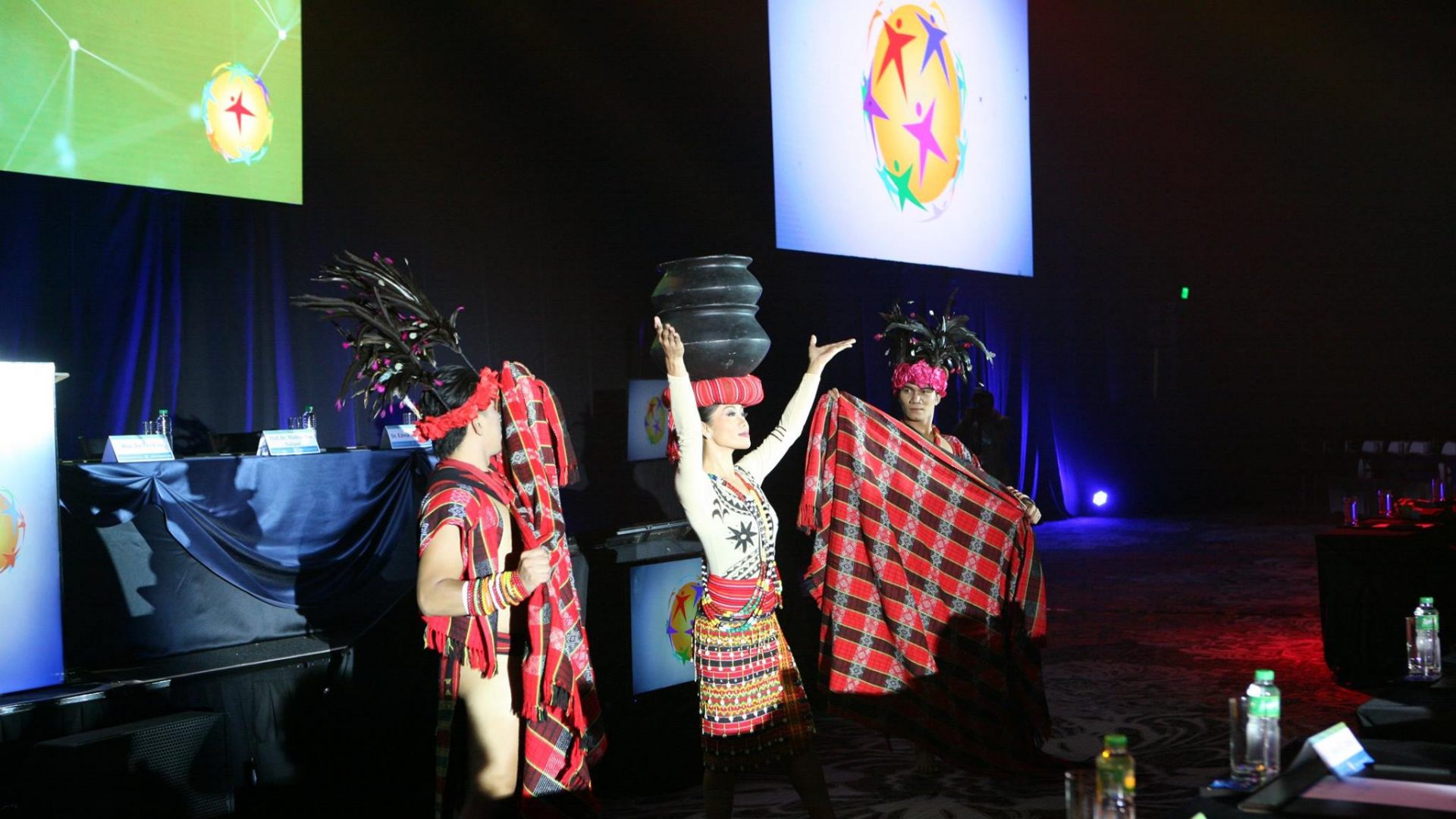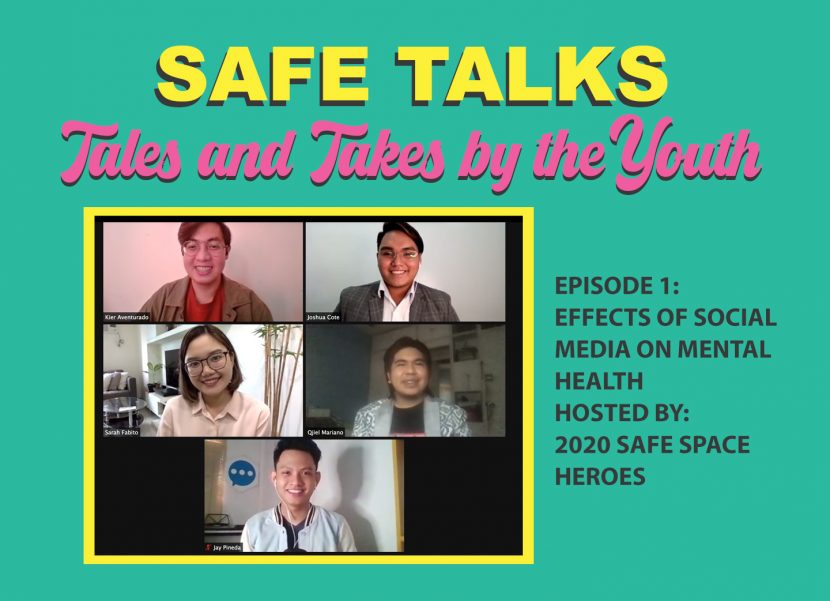The 2020 Safe Space Heroes hosted the very first episode of the “SAFE TALKS: Tales and Takes by the Youth” aired last October 16, 4pm on Zoom and Facebook live. Episode 1 is about the effects of social media on Mental Health. This webinar series is an avenue to discuss important matters and challenges concerning the youth.
The five outstanding alumni of the Global Youth Summit are the hosts for this webinar. Aside from being the 2020 GYS Outstanding alumni, Kier Adventurado of Happy Hearts Initiative, Joshua G. Cote of The Puso Movement, Sarah Jane Fabito of Witech Batangas, Jay Angelo Pineda of NCov Bot PH and SakayQC, and Qjiel Mariano of Ladders to Literacy were also chosen to be this year’s Safe Space Heroes.
The episode started off with the “kamustahan” of the Safe Space Heroes. They shared their experiences on online classes and works. They also mentioned about the updates on the programs and events they are currently working on. After which, they moved on to the discussion proper.
Raising awareness for mental health is not exclusively for the youth. Everyone should have a clear understanding of what it is and how one can deal with it and with people who have mental health problems. Until we resolve the issue at hand, there is no such thing as ‘too much’ on educating people about a certain topic, for in this case, mental health. There are existing organizations pushing for mental health awareness, however, stigmatizing and judging people with mental health conditions are still rampant, especially on social media.
Social media is a good way for people to stay connected even though physically distanced. It can be a platform for information-sharing/gathering all around the globe. However, like any other technological advancements, it has unintended consequences that may affect one’s mental health.
Right now, it is very easy for people to post on their personal social media accounts that is why not everything posted online are reliable and trustworthy sources of information. Some of which may be fake news, phishing links, scams, etc. that are threatening the safety of the online community. It is advisable that every information to be shared or acquired should be double-checked.
Social media can also be used to create online communities united by common interests or pushing for the same advocacies however, not everything are good ones. Some may involve bullying other people, platform to spread hate and fake news, etc. One should be vigilant in choosing what goes in his/her social media feed so that the information he/she will receive be beneficial rather than harmful. It is okay to post emotions and feelings online but it is also important that he/she should be responsible to indicate a trigger warning for posts with strong emotions and sensitive topics.
Since there are lots of information constantly updated, it develops the “fear of missing out” (FOMO) not just on the news one was not updated with but also of the people around us whom one cannot connect with immediately. Moreover, one tend to compare his/her lifestyle to others by simply viewing one’s myday or posted stories. Social comparison may lower self-esteem and encourage discontentment. Remember that in social media, people only post highlights of what they want people to see so it is unhealthy for your mental health to compare yourself with others especially based on what posted in his/her social media account. One should be able to identify the things he/she consider as ‘red flags’ so that he/she can avoid it and lessen stress. Unfriend or unlike pages, leave groups or group chats if you must.
One cannot give what he/she do not have so parents and teachers should also take care of their mental health for them to properly guide the youth. If the parents can notice negative effects of the use of social media on their children, they may opt to compromise with them to lessen the number of hours they spend on these sites. The youth should be able to seek help from trusted adults that is why mental health awareness if for everyone.
The hosts also discussed about the ‘cancel culture’ on social media. Beginning from the callout culture, it has evolved to something more personal. From calling out to inappropriate behaviors or language, it has turned into personal attacks to the person as if he/she cannot change the mistake he/she have committed. Cancel culture cancels out the chance for a person to grow and change himself for the better. One must remember that there is a human behind those screens and one should be mindful of his/her etiquette online.
To end the session, the hosts encouraged the viewers to join various youth organizations, programs, and projects. They plugged each of their organizations’ advocacies
Safe Talks: Tales and Takes by the Youth is a series of conversations led by the youth discussing important social concerns and challenges facing the world today. These episodes will be hosted by young people who will be sharing their own stories and experiences pertinent to the episode’s topic (tales) and their thoughts, opinions, suggestions on what should be done and how to encourage everyone to be part of the solution (takes).
This series supports the Safe Spaces Campaign of Consuelo Foundation and Global Peace Foundation. Not only will this be a good advocacy platform but will also uphold the right of children and youth to participate and be heard by providing them a free and safe space to share their thoughts and opinions.
The next episode of Safe Talks: Tales and Takes by the Youth “HOW DO THE YOUTH DREAM?” will be on November 13, 2020 (Friday).
Register at: https://bit.ly/2H9WeUz


